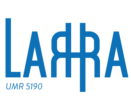Context note for the class Group – E74 Back
Candidate
Context note
- Text
In the Descriptions and Situations ontology the Group class is conceptualized as an "Intentional collective [i.e.] a knowledge community that is unified by a plan shared by member agents.". (Gangemi Aldo, « Norms and plans as unification criteria for social collectives. », Auton. Agents Multi Agent Syst. 17 (1), 2008, pp. 70‑112, https://doi.org/10.1007/s10458-008-9038-9. )
Porello et al. analyse some foundational aspects of groups and group agency to conclude that groups are based on membership norms shared by the participants and that group agency furthermore demands acknowledgment of formal procedures to take decisions by delegation of other members (Porello Daniele, Bottazzi Emanuele et Ferrario Roberta, « The Ontology of Group Agency. », in: Formal Ontology in Information Systems-Proceedings of the Eighth International Conference, FOIS 2014, September, 22-25, 2014, Rio de Janeiro, Brazil, 2014, pp. 183‑196, https://doi.org/10.3233/978-1-61499-438-1-183).
In the SDHSS ontology ecosystem, the ontological substance of a group is considered to lie in the representations of the members of the group that share a plan, however rudimentary, and accept to integrate their individual agency into the group in order to realize collective agency, even if in a very informal way. The specific roles of individuals or sub-groups (e.g. steering comittee, president, etc.) will be expressed using the sdh-so:C13 Social Role Embodiment class.
- Language
- en




Comments
No comment found.